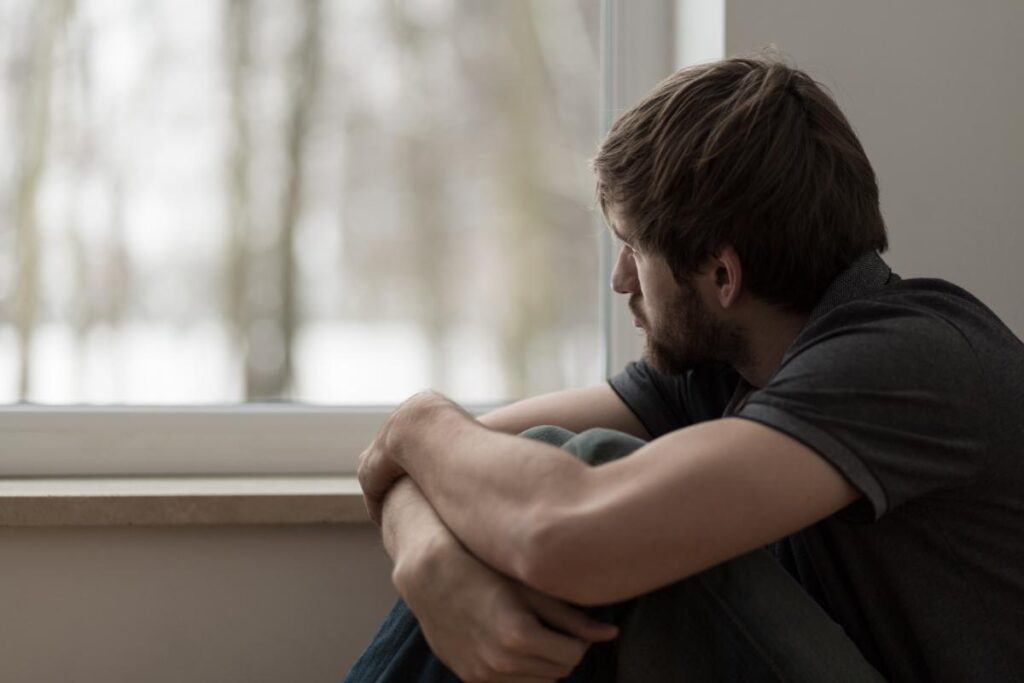Have you been feeling sad, empty, or hopeless for long periods? Have you completely lost your interest in things or people you used to enjoy? These things can include hobbies, family, and friends. You should be aware that these are possible signs of depression. Recognizing the signs and symptoms of depression is critical before finding the right mental health treatment center to manage the strong emotions it causes.
If you struggle with the drag of depression, you are not alone. More than 16 million Americans experience the disorder in any given year. Finding professional mental health services can help you discover new ways to manage your depression and get back on track. Call the team at The Right Step today at 1.844.675.1628 to get started.
What Is Depression?
Almost all people experience times in life when they feel low and sad. This sadness can be due to things not working out as expected. It is normal to have those feelings if they disappear after some time.
However, depression is a mood disorder. Symptoms of depression include severe feelings of emptiness, sadness, and anxiety that disrupt healthy life. These symptoms can be hard to spot and often come up in ways that may be easier to recognize.
Common Signs of Depression
It is essential to establish whether you or a loved one is suffering from depression. When left untreated, the condition can lead to death through suicide. There are several symptoms to look out for, including:
- Constant sadness, anxiety, and moodiness
- Being pessimistic and hopeless
- Reduced or complete loss of interest in activities or hobbies
- Suicidal thoughts, attempts, and feelings of death
- Unexplained muscle aches, especially in the chest and stomach
- Trouble thinking straight or making decisions
- Unpredictable sleep patterns and weight gain or loss
Types of Depression
There are several types of depression disorders you may not be familiar with. Read on to learn more about the different kinds of depression.
Persistent Depressive Disorder
Also called dysthymia, the primary characteristic of this disorder is a depressed mood that lasts for at least two years. Typically, individuals with the condition go through high and low mood swings. People with this type of depression must show or experience the warning signs of depression for more than two years.
Bipolar Disorder
People with bipolar disorder experience extreme mood swings. Sometimes, they feel very energetic and happy, a state of mind known as mania. They also become so sad and depressed that they cannot get up from bed, which is clinical depression. Bipolar disorder is commonly confused with other depressive disorders because the symptoms are similar.
Postpartum Depression
This condition is sometimes mislabeled as the minimized baby blues or a mild anxiety condition that women experience within two weeks after delivery. However, women with the disease experience significant depression during pregnancy or after birth. Women with postpartum depression experience severe anxiety, exhaustion, and sadness that disrupts their healthy lives.
Seasonal Affective Disorder
Individuals suffering from this type of depression experience their symptoms at the beginning of the winter season. This season is when the amount of natural sunlight we receive is low. Expect such people to show various symptoms, such as increased sleep, social withdrawal, and weight gain.
Major Depressive Disorder
Major depressive disorder is the most common form of depression. Symptoms are severe and affect how individuals behave, think, and feel. People who suffer from major depression experience at least five symptoms that impair their lives.
Symptoms of a major depressive disorder include:
- Loss of interest in activities or hobbies
- Fatigue and low energy levels
- Trouble concentrating
- Changes in sleep patterns and appetite
- Suicidal thoughts, attempts, or feelings of death
Common Treatment for Depression
Depression is a serious medical condition that requires treatment. If you or a loved one is experiencing any of the symptoms mentioned above, it is essential to seek professional help.
The most common treatments for depression include:
- Psychotherapy – where therapists talk to patients to help understand and manage thoughts, feelings, and behaviors.
- Medication – antidepressants, mood stabilizers, and antipsychotics can help regulate the brain’s chemicals responsible for controlling emotions.
Mental health professionals like psychologists and psychiatrists can help to prescribe the appropriate treatment plans you need if you suffer from depression.
Overcome Signs of Depression at Right Step Hill Country
At our state-of-the-art rehab facility, we offer several treatment options for depression and addiction, including:
- Dialectical behavioral therapy (DBT)
- Medically-assisted detox therapy
- Chronic relapse prevention therapy
- Cognitive-behavioral therapy (CBT)
- Inpatient rehab treatment
- Aftercare programs
During rehab, a team of therapists will work with you to create a treatment plan. This plan will then address your cause of depression and any other co-occurring or underlying mental disorders.
In many cases, treatment includes a substance abuse treatment program since many people struggling with depression disorders also have an alcohol or drug addiction. Before you leave the rehab facility, you will receive an aftercare plan to help you cope with life stress more healthily.
Do not let depression control your life. Contact us today at 1.844.675.1628 to schedule an appointment or learn more about depression.

